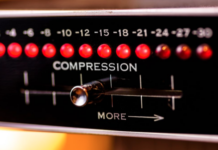Yesterday I found myself shopping for a chair to use for solo acoustic gigs. What should have been a “find a cheap chair and be done with it,” project has now become an actual decision. I started thinking about that pain in my back when I have been playing a lot of solo gigs. I thought about how nice a back rest would be and how my leg feels if the chair is too high or too low while I’m trying to operate my foot pedals. I have been noticing lately that my posture during playing is causing me issues. And I found out I’m not alone in this.
A survey recently showed that 64% to 76% of orchestra musicians suffer from what are called repetitive strain injuries — something we all know. If you are out pulling weeds for several hours one day, and the last time you pulled weeds, tik tok was just the sound a clock made, your hand and back may be sore the next day. Now if you pulled weeds for six hours six days a week, not only would your hands be strong, but you can imagine the toll on your back from years of bending and stooping. Musicians, like all people who work hard, suffer the same ailments.
Not only are repetitive motions detrimental to our physical health, postural dysfunction is also high on the list of culprits when it comes to work injuries. When one spends hours sitting or standing in a particular way, the body reacts. For musicians, the top physical concern is centered in the path from your neck to your fingertips. Whereas the anatomy of this pathway is beyond the scope of this article, the numbness it can cause in the hands and fingers of musicians is common knowledge. Tendonitis, carpal tunnel syndrome, and bursitis are just a few of the diagnoses a musician can hear. The compression of the nerves of the hand passing through the elbow and wrist often causes tingling and numbing of the fingers. When this happens, your fingers feel like sausages and you can’t feel the strings under your fingers. It’s not conducive to good times — or good music.
Horn players often spend hours with their arms in a particular position. This can cause joint dysfunction in the shoulders where nerves can be compressed and inflamed. Drumming is perhaps the most physically demanding on the entirety of one’s body, with so many joints and muscles working continually from a seated position.
The list goes on and each instrument comes with its own set of potential issues. As with all things, prevention is key. But many of us learn on our own and by the time we are aware of the incorrect posture and bad playing habits that help to lead to these issues, it’s because we feel the results.
Among the more difficult aspects of the entertainment business to treat are the mental health issues that artists suffer.
If you find yourself needing help with stress, anxiety or extreme stage fright, you are not alone. Reach out to someone. We all get it. We all deal with it. We learn to handle it. So will you.






















